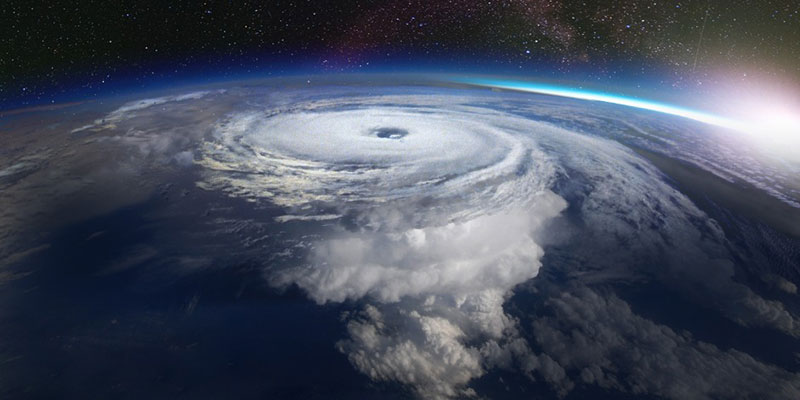One lesson learned from the 2022 season is that unlike what they say about lightning, hurricanes can and do strike twice in the same place.
Persistent hurricanes wreaked havoc on water and wastewater infrastructure in 2022. How can we prepare better in 2023?
Although the 2022 hurricane season produced fewer storms than expected, some of those that did form remained organized for surprisingly long distances. The cohesion of this year’s cyclonic storms allowed them to pass over even major land masses without dissipating. What water lessons can we learn from the 2022 hurricane season?
As we can see from the following examples, it’s becoming more and more necessary to expect the unexpected, and this means building flexibility into water and wastewater systems.
Unpredictable Storm Season
Like Hurricane Ida in 2021, which remained a hurricane for 16 hours after landfall, several 2022 storms seemed undeterred by land masses.
For example, Tropical Storm Bonnie hit land on the border between Costa Rica and Nicaragua and kept going into the Pacific. It was the first to survive the overland passage since 2016’s Hurricane Otto. While Bonnie was crossing overland, Tropical Storm Colin uncharacteristically formed in inland South Carolina.
Hurricane Fiona became the first major hurricane of the season, approximately three weeks later than the first major hurricane usually forms. It devastated Puerto Rico, causing power outages and high river levels that made it difficult to restart the island’s 112 water filtration plants.
Fiona killed four and left the vast majority of Puerto Ricans without water service. The United States Environmental Protection Agency was mobilized to help the Army Corps of Engineers assess the storm’s impact on water and wastewater infrastructure.
One lesson learned from the 2022 season is that unlike what they say about lightning, hurricanes can and do strike twice in the same place. Only five years earlier, Hurricane Maria left as many as 50% of Puerto Ricans without reliable water service for a year.
From Puerto Rico, Fiona kept going for more than 1,800 miles (3,000 km) to hit Nova Scotia as the most powerful storm in Canadian history, causing major damage to Atlantic Canada.
Hurricane Ian was the second major hurricane to form, dealing a catastrophic blow to Western Cuba. Undeterred, it continued on to Florida. After landfall on the state’s Gulf Coast, the storm caused numerous and significant wastewater spills in the Tampa area. As it crossed the state, Ian severely damaged a water system in Lee County, affecting nearly 760,000, and left nine Florida hospitals without water. Exiting the state, Ian dealt a parting blow, causing wastewater discharges in Melbourne on the Atlantic coast, leaving sewage bubbling up through manholes.
But Florida proved only a bump in the road for Ian. It reentered the Atlantic and made its final landfall as a Category 1 hurricane in South Carolina, causing damage and ultimately leaving four dead in North Carolina.
Hurricane Julia soon hit Nicaragua and became the second 2022 storm to cross into the Pacific, and finally Hurricane Nicole hit the Bahamas and areas of Florida already devastated by Ian.
Decentralized Systems and Hurricane Resilience
The 2022 hurricane season taught that areas that may consider themselves safe may still remain vulnerable to storms that exhibit a growing tenacity. A storm that hits the west coast of Florida can cause havoc on the west coast, then hit the Carolinas. A storm that hits Puerto Rico can hit Canada. And a region hard-hit by a hurricane can be hit again.
When it comes to water management, decentralized systems are an answer to the call for hurricane resilience, offering an array of smaller plants instead of a single central plant. If one is damaged by a storm, it doesn’t affect the entire region. Fluence’s hurricane-resilient modular wastewater treatment and desalination units are rated for up to 150 mph winds. Packaged in steel shipping containers, they are ideal for decentralized application with ease of commissioning even on islands.
Contact Fluence for more information about our decentralized plants and our Water Management Services, which deliver water treatment free of upfront investment and long-term operations and maintenance.

